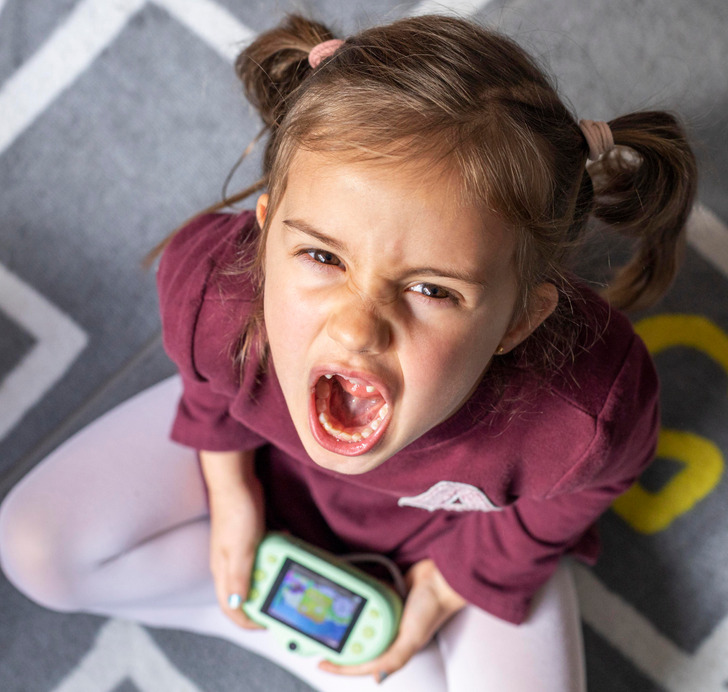My Child Frightened Her Therapist With a Dark Truth, and Now We're Terrified
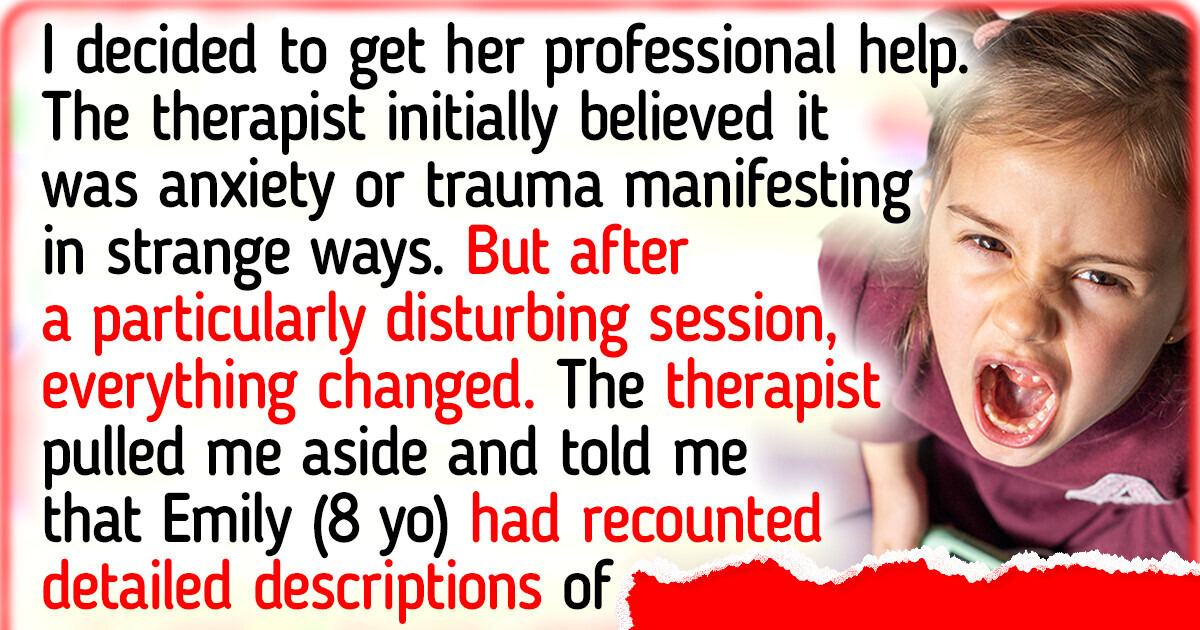
We recently received a letter from a reader sharing the ongoing challenges with her 8-year-old daughter. In the letter, she explained how Emilie’s behavior (names changed) caused an unexpected halt to her therapy sessions.
Emily had always been a quiet, introspective child, preferring books over the company of others. Her parents dismissed her behavior as shyness, content to let her find comfort in solitude.
But things took a turn when she began waking up in the night, screaming about strange "shadows." It started as nightmares, but soon unsettling drawings emerged—dark figures and eerie symbols. Her parents sensed a disturbing change in her, a shadow that seemed to grow with each passing night, leaving them deeply concerned.
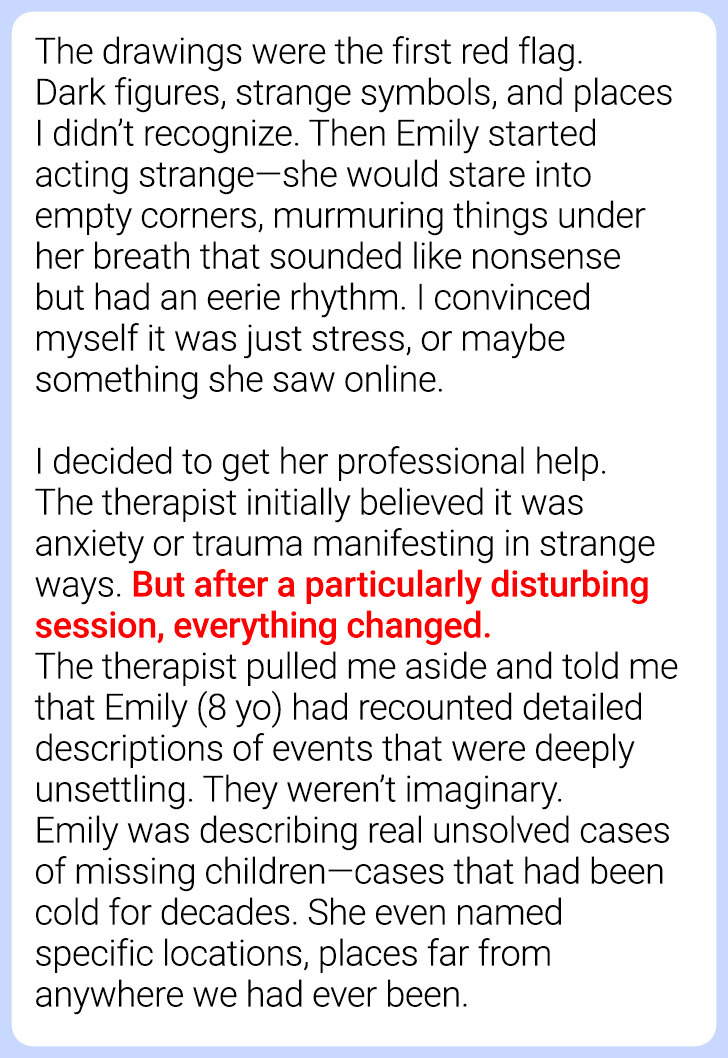
There was no way Emily could have known these things. The therapist, visibly shaken, began researching on their own and confirmed the unsettling connections. Every detail Emily had mentioned aligned too perfectly with unsolved cases, right down to the most obscure specifics.
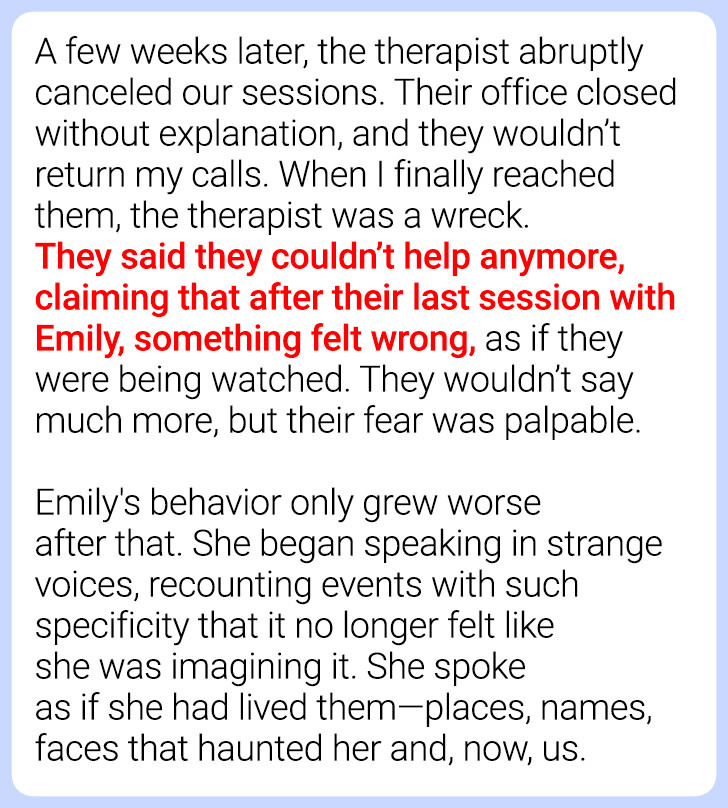
They had consulted everyone they could, but no one offered an explanation. Each night, Emily's presence grew more unsettling, and the air in their home felt heavy with an inexplicable weight. Deep down, they feared that whatever she had tapped into had crossed over into their world—and it wasn’t finished yet.
Emotional and behavioral signs of mental health concerns in children.
It's important to be aware of the emotional and behavioral signs that may indicate mental health issues in children. While it's normal for children to experience a range of emotions and behaviors, prolonged or intense symptoms could signal a more significant underlying problem. If these symptoms last for more than a few weeks, it is essential to have an open conversation with your child and consult a healthcare professional to ensure they receive the appropriate support.
Here are some common signs of potential mental health concerns in children:
Loss of interest in previously enjoyed activities: If your child suddenly shows little enthusiasm for hobbies, games, or activities they once loved, this could be a sign of emotional distress or depression.
Frequent tantrums or aggressive behavior: Outbursts of anger, irritability, or aggressive actions that happen more often than usual or seem disproportionate to the situation can be red flags for underlying issues, such as anxiety or behavioral disorders.
Persistent sadness or excessive crying: If your child appears unusually sad or cries frequently without an obvious cause, this could indicate depression or an emotional challenge they are struggling to cope with.
Excessive worry or fear: Anxiety can manifest in children as an overwhelming sense of fear or worry, even in situations that don’t seem threatening to others. Persistent anxiety may interfere with daily activities and their ability to enjoy life.
Avoidance of social situations or intense separation anxiety: A sudden reluctance to interact with friends, withdraw from social activities, or show extreme distress when separated from parents may be a sign of social anxiety, separation anxiety, or other mental health conditions.
Regression to earlier behaviors: Children may revert to behaviors typical of a younger developmental stage, such as thumb-sucking, bed-wetting, or needing extra reassurance. This can be a response to stress or emotional turmoil.
Inability to focus, restlessness, or hyperactivity: Difficulty concentrating, excessive movement, or impulsivity beyond what is typical for their age may indicate conditions like attention-deficit hyperactivity disorder (ADHD) or anxiety.
Recognizing these signs early can make a significant difference in helping children manage their emotions and behaviors, ensuring they grow up in a healthy, supportive environment.
Physical and social signs of mental health concerns in children.
Mental health challenges in children can show up through emotions, behaviors, physical symptoms, or changes in school and social life. These signs may be subtle, but are important for understanding a child’s well-being. If they last for weeks or worsen, it's vital to talk to your child and consult a healthcare professional.
Common signs include:
Physical Signs:
- Trouble sleeping or excessive sleep
- Difficulty waking up or changes in eating habits
- Significant weight loss or gain
- Unexplained physical pains like headaches or stomachaches
School and Social Signs:
- Drop in academic performance
- Social withdrawal or reluctance to attend school
- Loss of interest in activities
Early recognition and support can help children thrive both emotionally and physically.
We invite our readers to share their stories and advice on how they’ve helped their children navigate difficult times. Feel free to leave your thoughts and experiences in the comments!
Comments
Related Reads
15 People Who Uncovered a Family Secret That Shattered Their Reality
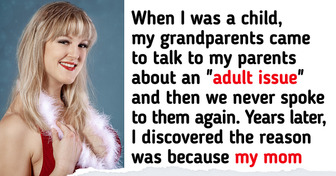
I Checked Our Security Camera After My Mother-in-Law Babysat for Us
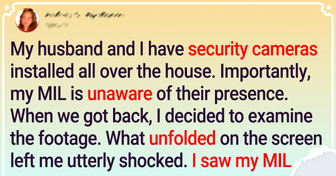
Our Dog Didn’t Run Away — My Husband’s Long-Term Dark Secret Exposed

Sofía Vergara Posts an Extra Cheeky Thong Pic, and People Are Wondering About One Thing

I Didn’t Tell My Husband’s Family I Spoke Their Language
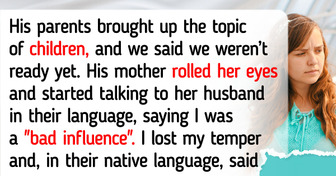
13 Celebs Who Dressed Up as Other Famous People and Had Us Gasping in Admiration

My Boss Tried to Ruin My Christmas Plans—I Got the Last Laugh
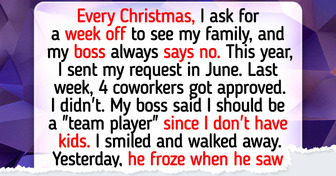
I Refused to Go to Work After a Family Emergency—HR Got Involved
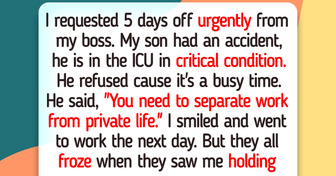
I Refused to Keep My Pregnancy Secret Just Because My Sister Lost Her Baby
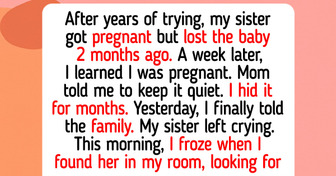
10 Jaw-Dropping Stories Where One Moment Changed Everything

10 Sassy Comebacks That Silenced Rooms in a Second
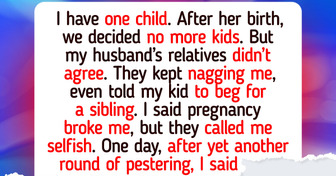
15 True Stories With Mind-Blowing Endings That Could Rival Hollywood

